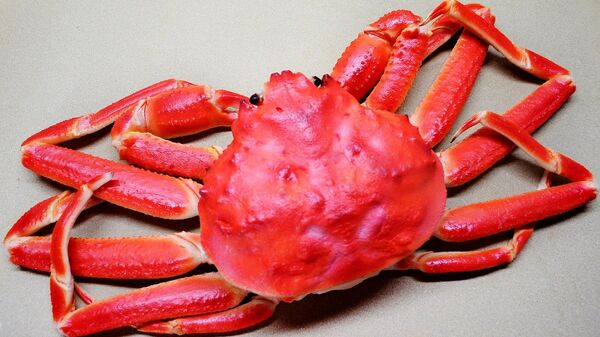Situated midway between continental Norway and the North Pole, Svalbard is a strange place indeed — while an inhospitable scrap of land constantly rocked by howling Arctic winds, its islands play host to the northernmost permanent civilian population in the world, and a 500-strong Russian mining community. The area is also home to a panoply of snow crabs, an internationally popular crustacean foodstuff.
While typically a calm, desolate region of the world — its total permanent inhabitants number less than 3,000, with a few dozen extra atmospheric and geological researchers coming and going throughout the year — this barren region is rapidly becoming a tense potential flashpoint in a coming confrontation between Norway and the EU.
Officially, Norway's annoyance stems from the EU's lackadaisical approach to national sovereignty. The Svalbard Treaty, originally inked in Paris 1920, recognizes Norway's sovereignty over Svalbard, although signatories (of which, as of 2017, there are 45) are given equal rights to engage in commercial activities (such as coal mining) on the islands and in its territorial waters, and equal access to its constituent resources.
This mild ambiguity has given rise to numerous quarrels — most recently, Norwegian leaders have expressed disquiet at the EU giving authorization to European ships, primarily from Baltic nations, to fish for snow crabs in the region.
When strictly interpreted, the Svalbard Treaty defines Svalbard's territorial waters as anywhere within 19 kilometers around the archipelago. However, Brussels interprets Svalbard's territorial waters as a 322 kilometer berth, and claims an absolute right to harvest any resources it wishes within this sprawling area.
The Svalbard Treaty from 1920 is still the basis of everything up here.#ThisIsSvalbard#ITweetMuseums pic.twitter.com/tIrzFZLdoJ
— Carina M. Gsottbauer (@CarinaDSLR) July 3, 2017
In January, a Latvian ship was caught in the crossfire of this fundamental disagreement — intercepted by Norwegian coastguards while crab hunting in the area, Vilnius was slapped with a weighty fine for its piscine insouciance.
Nonetheless, Oslo has demonstrated a willingness to satiate Brussels' apparently ravenous appetite for the snow crab, offering to earmark 500 tonnes of the decapod delicacy for direct, free transfer to interested European countries in return for fish. However, the EU has refused the proposal — after all, doing so would strengthen Norway's interpretation of the Treaty.
The EU's reticence to relinquish its position on the Treaty would be slightly odd, if its wrangles with Norway were truly about mere snow crabs — but many experts feel the conflict masks a much more significant commodity desire in the region, namely oil.
In April, the Norwegian Petroleum Directorate announced undiscovered oil and gas deposits in the Barents Sea were twice as large as previously assumed. The resources in the area are now estimated at 1.4 billion standard cubic metres of oil — or nearly 17.7 billion barrels. Oil companies the world over are understandably rubbing their hands at the unearthing, but Norway is seeking to quickly monopolize the resources for itself.
Oslo has granted exploration licences to national energy giant Statoil, and the company intends to start drilling before summer has concluded. Almost by definition, allowing the EU a slice of the wider area's crab population would give EU claims to the area's oil resources enhanced credibility.
"If the EU gets its way, that would mean that also oil and gas resources should be regarded as being covered by the Svalbard Treaty — and any subject of a treaty partner would enjoy equal rights as Norwegians to start drilling if the area was opened for commercial exploitation. This conflict won't be easy to resolve. The EU has shown it intends to play hardball, and as long as Norwegian vessels freely can fish snow crab in these waters, the EU will hardly settle for anything less," warned Harald Sakarias Brovig Hansen, Researcher at Fridtjof Nansen Institute, a Norwegian energy think tank.
For their part, Norway's government are treading carefully. Per Samdberg, Minister of Fisheries, has expressed optimism an agreement can be reached, but acknowledges it requires deft statesmanship to resolve satisfactorily — failure to do so means the whole affair risks ending up in international resolution courts, in which case the country's Svalbard policy could be "seriously challenged."




